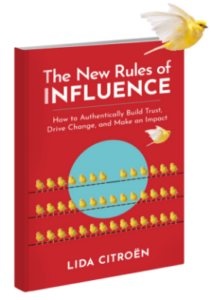This election year, many professionals struggle with whether or not to post about their political views online. Could their employer be upset? Might their colleagues be offended? Would their clients admire their political position? Job seekers must also consider whether posting about politics (and politicians) can impact job prospects.

There is a common belief that your social media profiles are yours to do with whatever you want. While it’s true that you are able to post your images, updates, messages and opinions (within the platform’s guidelines), what you post online can have consequences and impact beyond your intention.
More and more, employers, clients, colleagues and prospects will look at their employee’s, consultant’s, colleague’s or applicant’s online profiles to glean insight into the person’s values, interests, contacts and behavior.
Consider This Scenario:
Joe is passionate about Candidate A becoming elected President of the United States. Joe participates in local rallies, puts yard signs in his lawn, and shares disparaging cartoons about Presidential Candidate B, to show his support. Taking his passion further, Joe writes blogs, online posts, and comments on other people’s social profiles about his dislike for Candidate B, his advocacy of Candidate A, and ridicules people who don’t support his views.
Susan, Joe’s supervisor, is considering Joe for a promotion to management. She has reviewed his performance record and spoken to a few of Joe’s colleagues and personal references. Joe’s experience shows him to be skilled in his work, and thoughtful, smart, and loyal to a mission or cause. His colleagues and references talk about his strong work ethic, commitment to completing a task, and ability to build strong teams.
Then Susan decides to Google Joe’s name and see what pops up on a few social media platforms. What she sees is a very different side of Joe: His passion, loyalty and commitment to a cause are evident in his support of Candidate A…. but his use of foul language, inappropriate (and offensive) humor, and bullying behavior is concerning.
The Risk and Reward of Promoting Joe
As Susan considers promoting Joe, she’ll likely evaluating the risks of moving forward, including:
• Is the animosity Joe shares online who he really is?
• Are his online posts indicators of violence or erratic behavior?
• Could his lack of discretion online indicate how he will behave as a manager?
• Does his outspoken political position pose a risk for the company if he is in a management position?
Susan knows the legal parameters of considering Joe’s online activity in evaluating him for a promotion, but she also can’t un-see what she’s seen.
So she considers his online activity from another perspective:
• Is Joe exhibiting passion for an idea, cause and belief, which reinforces the positive traits his colleagues and references spoke about?
• Does he write and communicate effectively?
• Is he showing conviction in his ideas, values and beliefs in a way that could benefit the company?
If you stay within the rules and guidelines of the social platform, technically you are complying. But, consider that your employer likely has their own guidelines for employees’ online behavior, as well as a tolerance level for what they find “acceptable” and “appropriate”. Instead of guessing that your colleagues, managers, clients and prospects won’t be offended or upset by your political posts, remember that as much as employers also want to see passion and enthusiasm from their staff, they also want to see values expressed that align or support the company’s beliefs.


